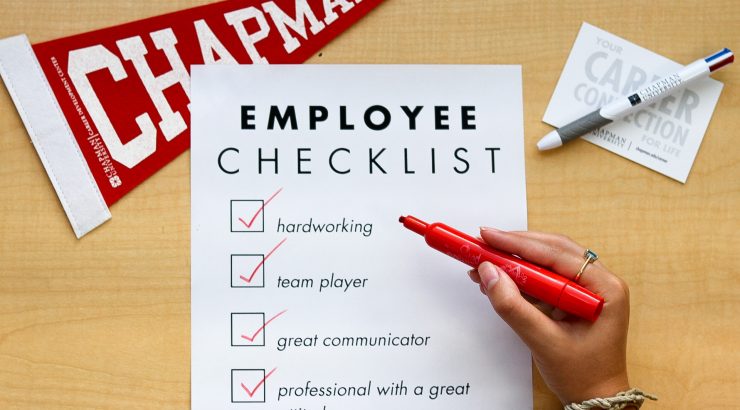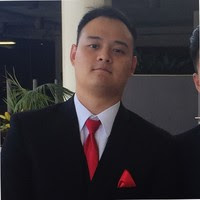
What Recruiters Look for in a Candidate See what skills recruiters often look for to stand out on your applications!
September 16, 2021
Although every industry, every company and every recruiter looks for different qualities in each candidate, there are some general qualities that should be present in each candidate’s application. To help you with this, we’ve created an application checklist to help you blow recruiters away and stand out during the application process!
✔ Proper punctuation and grammar
One of the most important things that recruiters often look for are proper grammar and spelling, as well as correct punctuation.
When you have spelling and punctuation errors, the recruiter may think that the candidate lacks attention to detail, which may be very important for specific positions. Regardless of the experience, you may have, having punctuation mistakes may sway recruiters’ decisions.
One way to make sure these errors are not present is to get your document reviewed by multiple people, both in your industry and not. You can also read your documents multiple times after each review by an outside person.
✔ Clear and effective communication
Another quality that recruiters often look for throughout different industries is the ability to communicate effectively and the act of communicating often. Clear and effective communication includes both verbal and electronic communication.
In an interview, the candidate should be able to develop clear and concise answers to the questions asked. Ideally, they can get their message across without rambling on.
Regarding electronic communication, the candidate should often communicate through email, checking up on the status of their application, thanking the interviewer for taking the time to consider the candidate, etc.
To learn more about thank you notes and why this type of communication is important, read our blog Why Thank You Notes Matter!
✔ Professionalism
Professionalism goes a long way and includes a little more than just wearing professional attire. In addition to wearing appropriate attire during interviews and introductions, you should also try to remain as professional as possible during any other interactions you may have with a recruiter.
This can include:
- Showing up to the interview early
- Using appropriate language in the emails you send
- Staying off your phone during the interview
- Responding promptly to any emails/messages the recruiter may send your way
- Making sure not to interrupt while the recruiter is talking
✔ Dedication
Recruiters get lots of applications, so it can be hard to stand out. One quality that always stands out to recruiters is the genuine dedication the applicants have. Putting in extra time and effort is the best way to show your commitment to working for the company.
Ways to show your dedication are to:
- Create new documents (resume, cover letter, etc.) for every position you apply to
- Talk about company news that isn’t readily available online in your interview
- Connect yourself to the company’s values and create a personal connection
✔ Teamwork
You may have heard many times that being a team player is essential, and IT IS! Recruiters and companies want to make sure that the candidate can work alongside others and collaborate with them appropriately and effectively.
Working in a team is a great way to show that you are good at other interpersonal skills such as communication, collaboration, and leadership.
✔ Ability to take constructive criticism
Taking constructive criticism is essential for a company’s growth and for an individual within an organization. Recruiters want to make sure that the candidate they consider can take advice from colleagues and apply it to their work to enhance overall growth.
Constructive criticism should not be taken personally because it is meant to strengthen your skills as a professional.
✔ Receptive to new teachings
The ability to be taught is an important skill and characteristic that many recruiters look for. Even though you may have background knowledge of a computer program or technique, recruiters like to see applicants willing to learn and expand their knowledge beyond what they already know.
Here is some additional advice recruiters have for students:

Ed Tien (He/Him) Early Careers Recruiter, Activision Blizzard
“It’s hard to list out hard/technical skills that can be applied to multiple fields and roles. I’ve worked and recruited for several different industries and hundreds of roles. I would say brush up on your Microsoft Office skills, specifically with Excel and PowerPoint. There may be times you’ll need to present/brief others, and having skills in that will really help make your point, and establish yourself as a great and effective communicator.
A piece of advice I’d like to give is to do research. A question I usually get is “What do I need to know or do to stand out?” After getting a feel for what you want to do, start researching industries that align with your interest, then keep working backwards. Once you find the industry, find some companies within that industry. Once you find some companies, look up some of the roles they offer. Once you find the appropriate roles, look up the skills they are asking for. Look up junior/associate/senior/manager levels for those same roles to see the progression and start getting ahead of the game!
Communication, leadership, and teamwork would be my top 3 [soft/interpersonal skills]. Companies are looking for their future leaders. Future leaders know how to communicate effectively, collaborate across all levels, inspire others, build bridges, and more! One way for you to exhibit those skills would be to get involved while you’re in school. Join some clubs, join some professional organizations, or start one if none are available! Don’t just be a member. Take on the challenge of becoming an officer as well because it shows those important soft skills. As a recruiter, we love to see involvement in organizations.
My final piece of advice is that you can find experience anywhere, [not just] internships/jobs. Put yourself out there and find relevant experiences, volunteering is always an option! Connect with your professors for research opportunities or projects. Check with the department to see if there’s any initiatives they’re looking to do/start. There are many options out there, find those experiences and build out your resume so that you can answer the basic question of “what do you want to do?”

Kimberly Hayashi (She/Her) Executive Director, Leadership Inspirations
“Some hard/technical skills I feel are important for students to have are writing skills, knowledge in a variety of software, and sales skills! These can be applied to a variety of roles across many industries.
As someone who has worked with students and hired some myself, the most important soft/interpersonal skills I look for in candidates are the ability to make connections (with people and content), a strong work ethic, and professionalism.
There are absolutely ways these skills can be represented in an application! Word choice, organization, choice of topics to include all can show pieces of these skills – these all can infer something to the person reading it!”

Rikki Acuna (she/her) Territory Manager, Techtronic Industries – TTI
“The most beneficial hard skill is to be bilingual. We really value candidates who are fluent in Spanish, Vietnamese, and Mandarin etc. We cater to many different customer demographics, and we are constantly expanding our business overseas, so being bilingual gives employees more opportunities. Microsoft Office, Zoom, Teams and other programs are crucial to have experience with. It goes without saying that COVID has really affected the way we run business. There has been a monumental shift to online conferences, file sharing and so forth. To be successful in today’s job market, it is crucial to understand the different common applications companies may use. The final hard skill that can be applied to a multitude of roles is knowledge of Excel. Excel is used in so many areas of our business; from attendance keeping to sales forecast. Overall, it is extremely important to be well rounded.
As a recruiter, I can look at as many as 100 resumes a week. Soft skills are not explicitly written on a resume like hard skills, but there are certain characteristics in a resume that are a tell-tale sign of the candidate. The most important soft skill we look for is leadership; someone who is persuasive, motivated and an effective communicator. For this trait, we look at a student’s involvement on campus, if they are a leader in student organizations, if they help lead a volunteer group or a sports team. Organization is a huge one too. Can this potential candidate meet deadlines and possibly, juggle several projects at once?… A high GPA indicates their ability to do so, while a lower GPA says they might struggle. This is not always the case; say a student struggled in the beginning of their college career and their GPA suffered as a result. We always allow candidates to explain their story to give us an idea on who is behind the resume. Finally, we look to hire people who are always eager and willing to learn. It shows their dedication to possibly growing their career with our company. Internships and part-time jobs that use what they are learning in the classroom and applying it to real life experience always stands out to recruiters. It shows commitment to the material as well as a desire to go above and beyond.”
To talk more with recruiters and learn more about what they look for, attend Chapman’s Virtual Career Fair on Tuesday, September 21st from 1:30 p.m. – 4:30 p.m. Register for the Fall 2021 Career Fair via Handshake.
